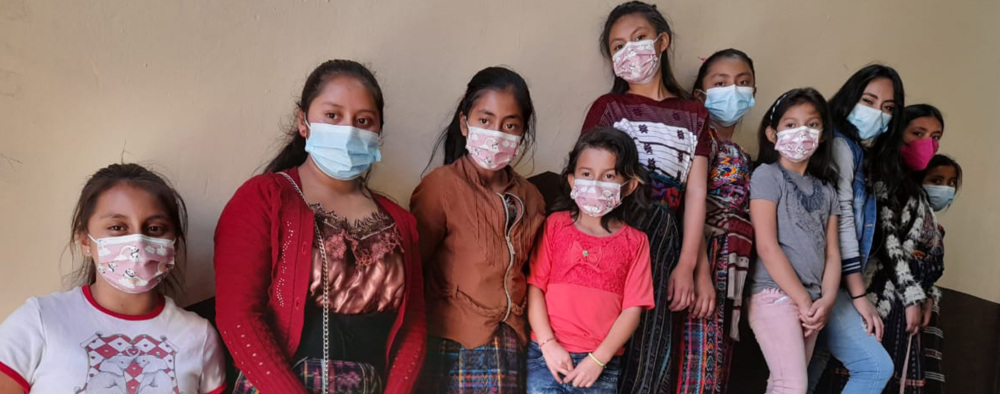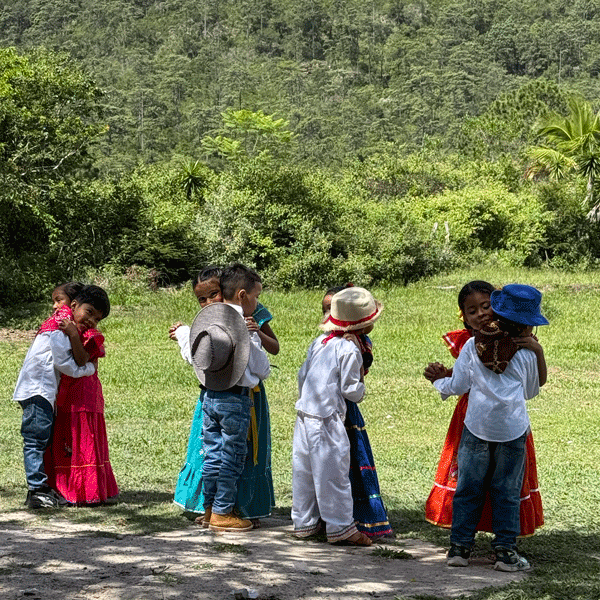
Education
Education
This blog is also available in Spanish.
More than a year after the first reported case of COVID-19 in Latin America and the Caribbean, children in the region have missed an average of roughly three months more class time than students in other parts of the world. According to a UNICEF article from March 2021, 114 million children and adolescents across the region – the highest number of any region in the world – continue to miss face-to-face education, while over 3 million are in danger of permanently dropping out of school.
In Guatemala, Honduras, and Nicaragua, GFC works with 17 community-based organizations through its Empowering Adolescent Girls in Central America initiative with support from Dubai Cares, a UAE-based global philanthropic organization.
Halfway through the 2021 school year, GFC’s local partners on the ground are reporting a myriad of challenges in ensuring children and adolescents have access to education and aren’t negatively impacted by COVID learning loss. For instance, limited internet connectivity and a lack of access to the necessary technology mean that many children are not continuing their studies as long as school buildings remain closed.
[image_caption caption=”Girls from Chimaltenango who participate in Coincidir programs met with a congressional representative who is proposing a law to guarantee free internet access in rural areas. © Coincidir” float=””]
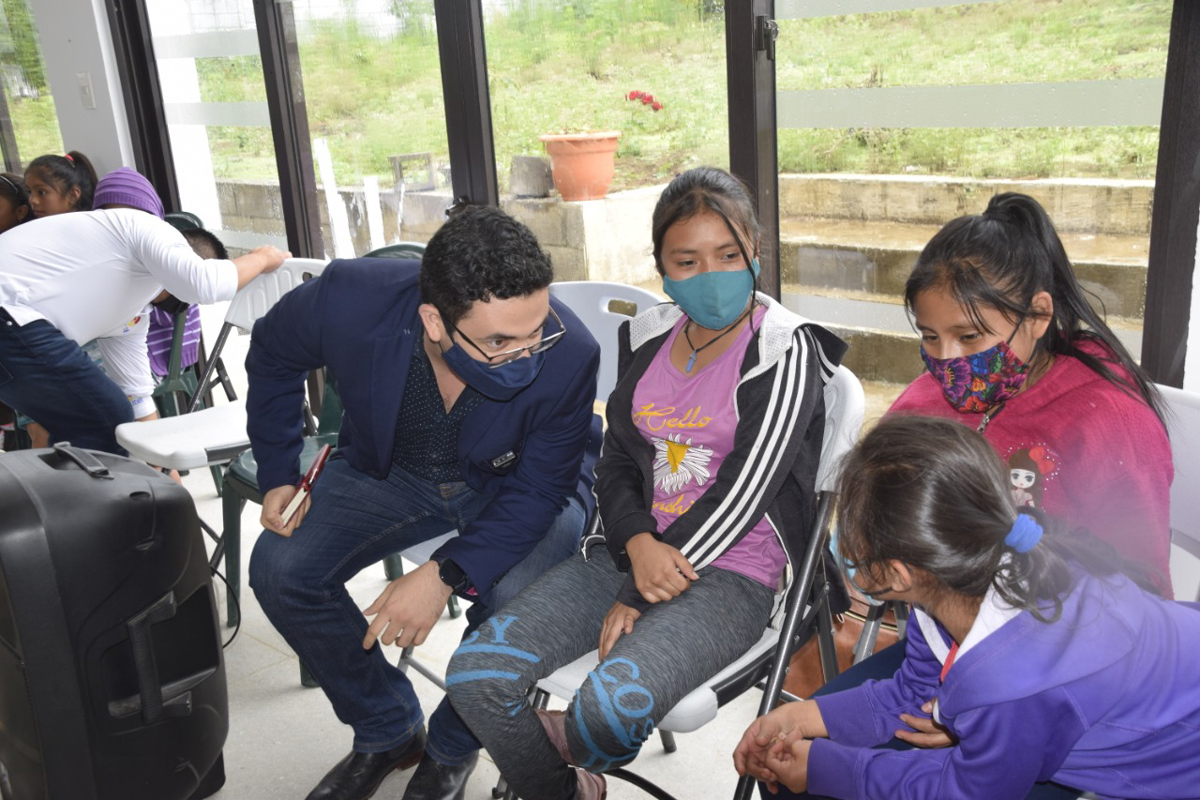
[/image_caption]
Second and third waves of the virus, along with an overall slow vaccine rollout, have prevented many public schools in Guatemala and Honduras from reopening. In Nicaragua, where public schools have remained open during most of the pandemic, our partners report that many parents have chosen not to send their children to class as fears about the spread of coronavirus have increased. The economic impacts of the pandemic have also diminished their ability to pay bus fares and other school-related costs.
Other challenges reported by partners in the initiative have to do with the emotional and physical wellbeing of children, adolescents, and youth. For instance, they are seeing that many adolescent girls are marrying early in an effort to ease the economic burden on their families, which face exacerbated job and food insecurity. Across the three countries, there has been an increase in reported cases of physical, emotional, and sexual violence against women and girls (VAWG), while the barriers to reporting VAWG and providing follow-up services to survivors have grown.
Our partners on the ground know firsthand the importance of investing in the education of children and adolescents to achieve sustainable development.
To respond to the challenges created by the pandemic, GFC partners in this initiative are finding innovative ways to reach children and adolescents in the communities they serve and prevent COVID learning loss, while ensuring the safety and wellbeing of youth and team members. Here are two examples:
Chimaltenango, Guatemala
For many low-income children and families in Guatemala, internet access and smartphones are luxuries they simply cannot afford.
“Sometimes I can’t access my classes because the internet runs out or it gets slow and kicks me out of the call,” one Coincidir program participant explained. “I have seen that my peers with limited resources cannot even receive the call.”
[image_caption caption=”With support from Coincidir, ten girls from Chimaltenango traveled to Guatemala City to meet with the President of the Guatemalan Congress’s Education, Science, and Technology Commission. © Coincidir” float=””]
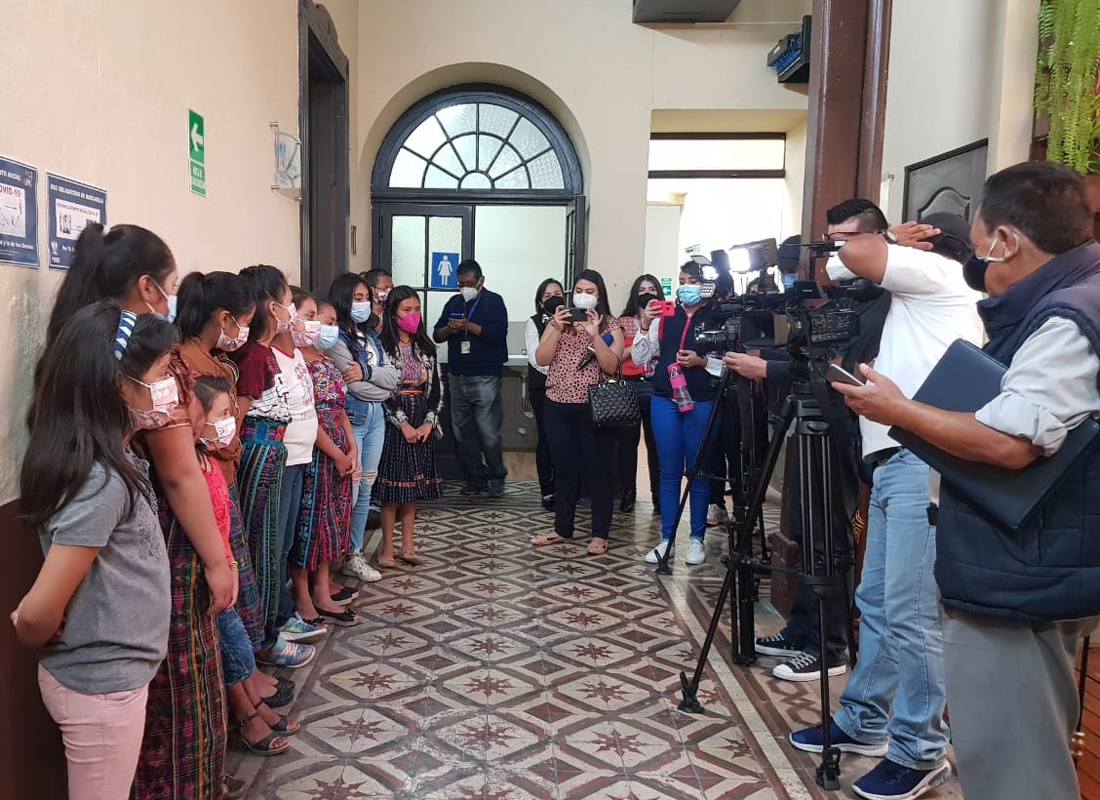
[/image_caption]
Coincidir is supporting the participation of 75 girls and adolescents from the departments of Chimaltenango and Jalapa in a nationwide campaign to advocate for laws that promote free internet access in rural areas. Their goal is to enable distance learning in rural areas and for this technology to contribute to the nation’s alert system for missing children. Coincidir is also helping to facilitate meetings between ten of these girls and the Guatemalan Congress’s Education, Science, and Technology Commission so that the girls can express their needs and demands directly to congressional stakeholders.
Tegucigalpa, Honduras
Artemisa works with students in marginalized urban areas who face poverty, violence, and social exclusion. Due to government-mandated curfews and social distancing rules in 2020, Artemisa struggled to continue its regular programming because the organization normally coordinates its activities with local educational institutions in the communities it serves. To overcome these challenges, Artemisa inaugurated a “digital classroom” in its new office in Valle de Ángeles, Honduras. The digital classroom offers internet access and tools such as tablets, computers, and printers that allow students to complete their assignments, thus motivating them to continue their studies and preventing COVID slide, the loss of academic skills and knowledge due to pandemic school closures. Artemisa expects to reach 200 girls and adolescents with this initiative.
[image_caption caption=”Artemisa’s digital classroom, ready to receive students. © Artemisa” float=””]
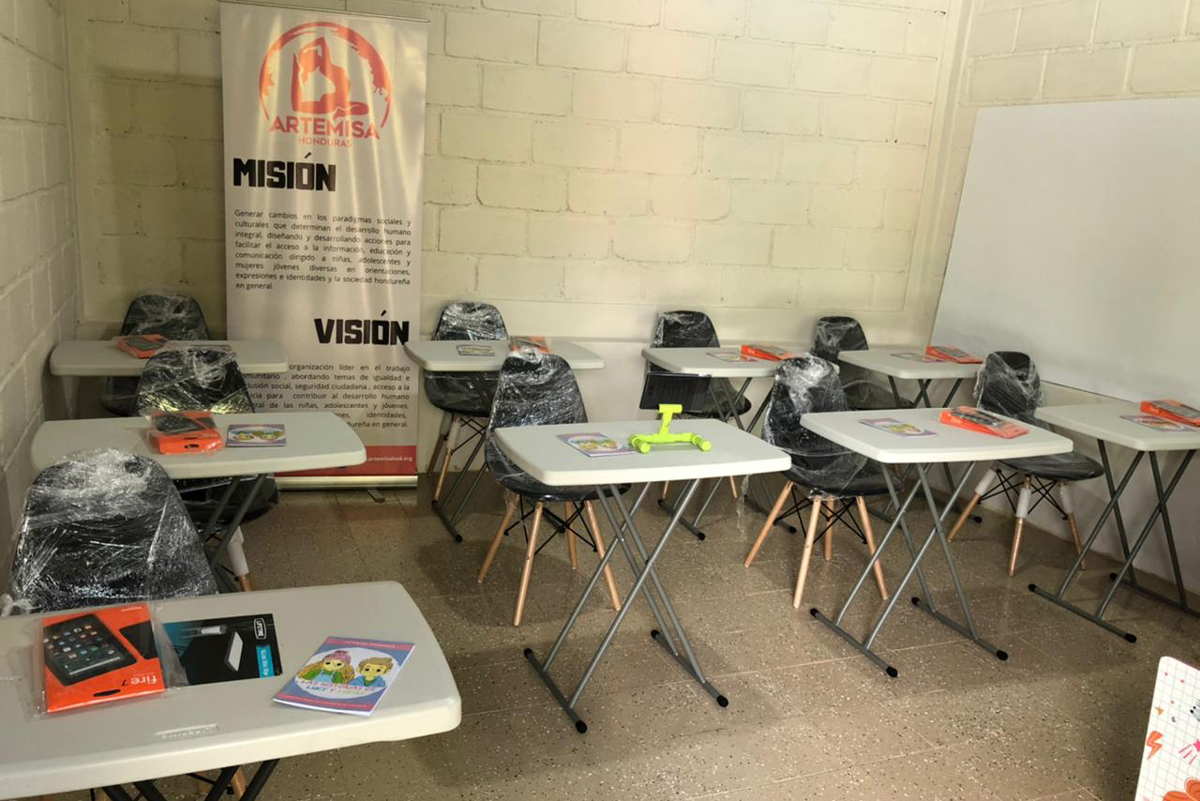
[/image_caption]
“The pandemic has been extremely harsh to organizations and groups that carry out their work directly in rural and marginalized communities,” Artemisa stated in a report. “However, in this context, we have learned to be innovative and resilient, thus continuing to support our beneficiaries to continue their studies.”
[image_caption caption=”Ciane, a representative from Artemisa (right), interviews a potential applicant to the digital classroom. © Artemisa” float=””]
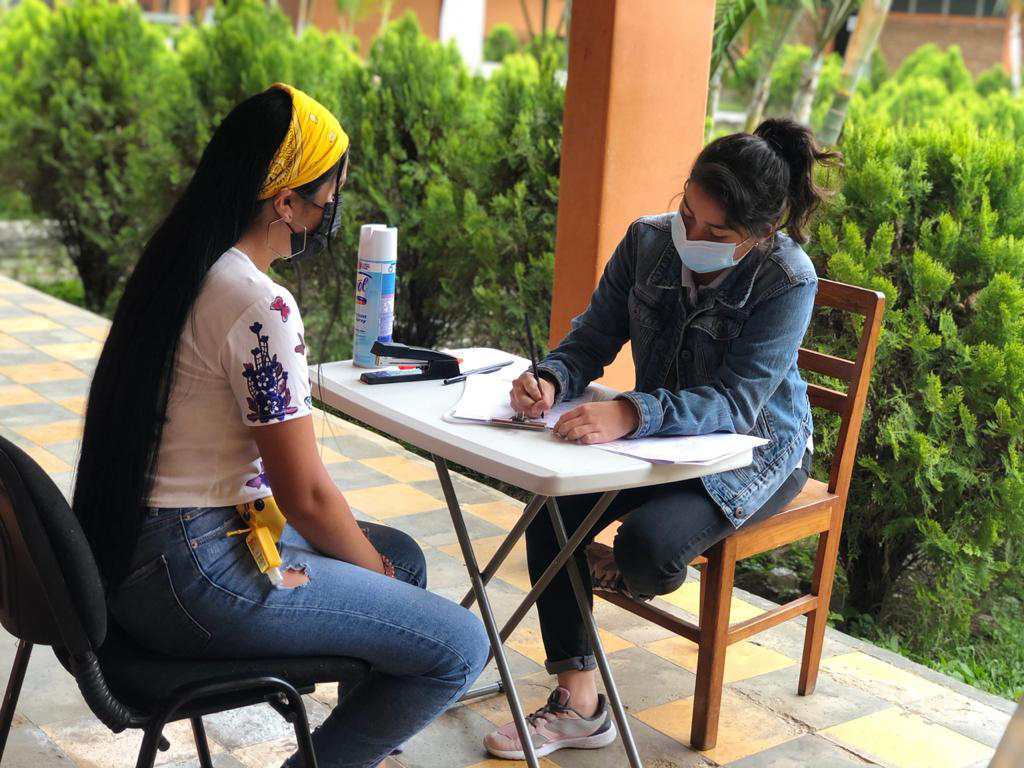
[/image_caption]
Header photo: With support from Coincidir, ten girls from Chimaltenango traveled to Guatemala City to advocate for laws that promote free internet access in rural areas. © Coincidir
